Colorado Mountain Dog Pros and Cons – Complete Owners Guide
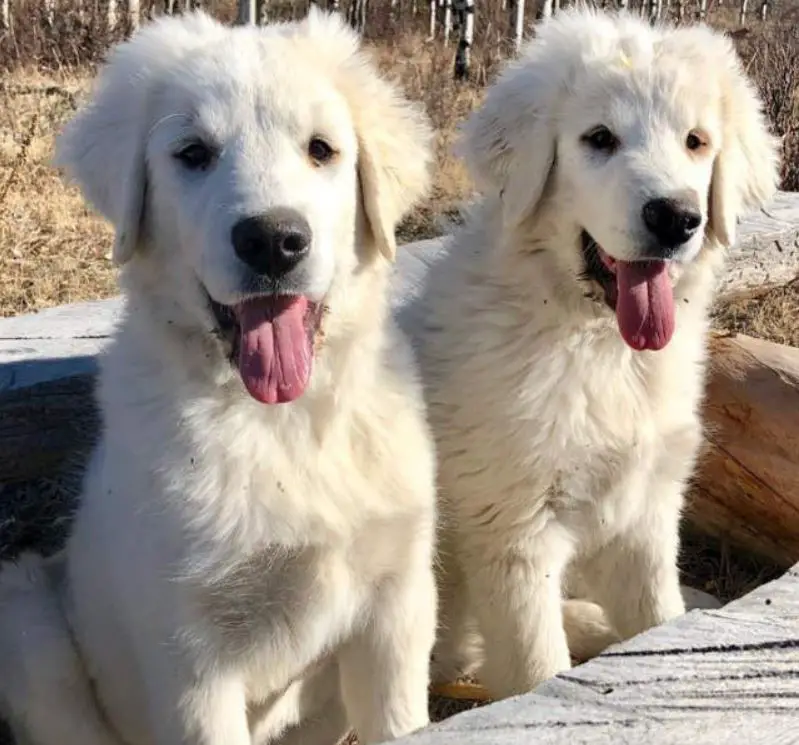
Your Colorado Mountain dog is going to be large, affectionate, have a soft appearance, and a relaxed demeanor. His main job is to guard livestock against predators. But Colorado Mountain dogs also love to be part of the family and loves kids.
Colorado Mountain Dog History:
The Colorado Mountain Dog is a hybrid cross of the Great Pyrenees and Anatolian shepherd.
The breed started with a dog named Caspian, a giant dog with solid bones, was slender and tall. He had a significantly low rate of genetic problems when compared to other livestock guardian dogs.
Caspian was bred with a female named Snow, and the puppies were an excellent result of the two. The puppies were sturdy, healthy, and were incredible at guarding livestock.
Plus, they had a friendly approach to people. The dogs weren’t hostile, aggressive, or shy. Soon the breed became familiar with the farmers and ranchers and was named the Colorado Mountain Dog Breed.
Flourishing Since 2012:
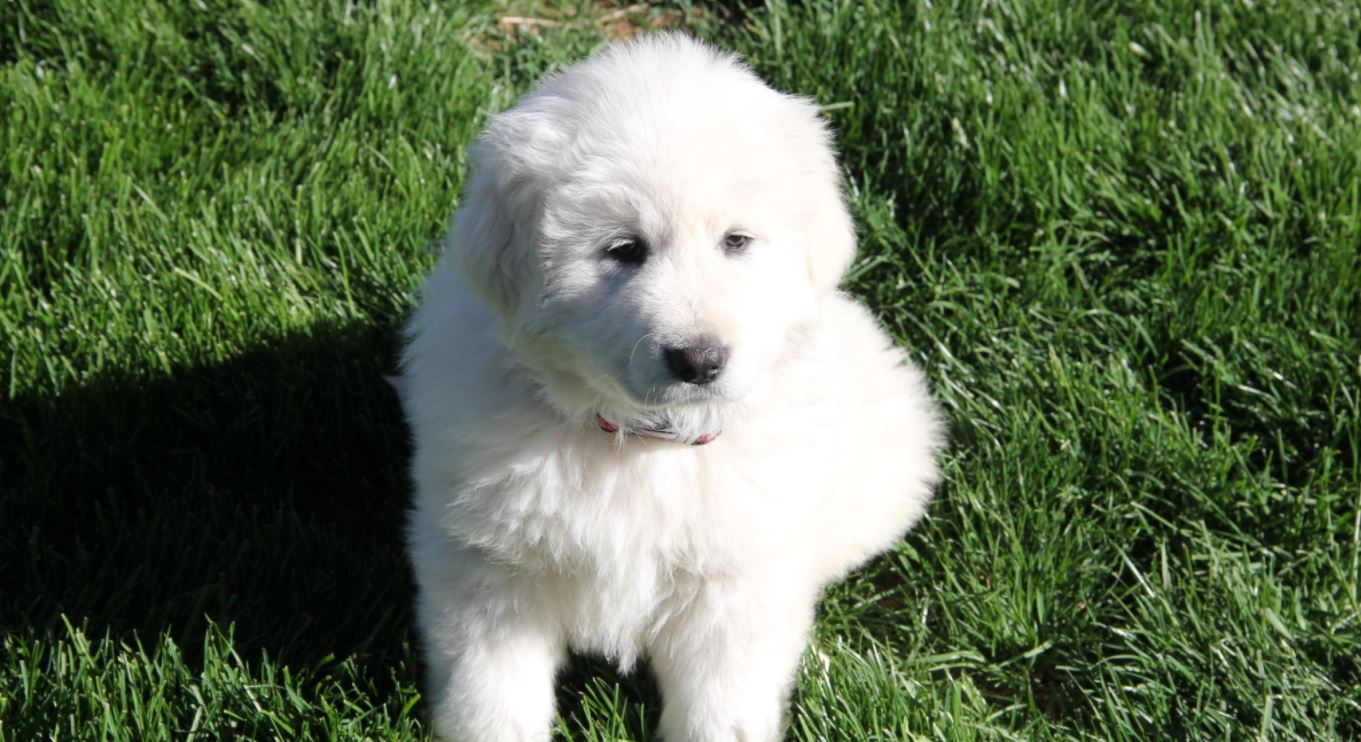
Because the owner was an ethical breeder, the breed started to flourish by 2012. Plus, the number of breeders increased.
The first registry of the breed of the Colorado Mountain Dog Association started in 2015. The Colorado Mountain Dog breed was accepted by the American Rare Breeds association in the year 2018.
The Colorado Mountain Dogs are screened individually by the CMDR. The dogs are screened for the typical traits that Colorado Mountain Dogs are known for.
The breed is now a hybrid of Great Pyrenees, Anatolian Shepard, St. Bernard, Maremma, Boz, and Akbash.
Pros
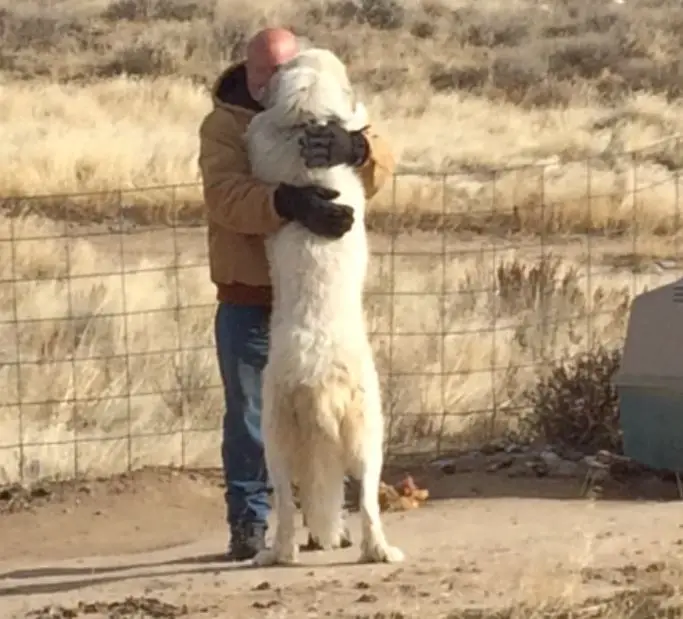
Temperament:
Usually, livestock guard dogs are stubborn, aggressive, and don’t mix with the flock they are guarding. But the Colorado Mountain Dogs have a pleasant and stable temperament. This is one of the biggest reasons for the breed to be in existence.
They have a friendly and loving nature, socialize easily, and welcome new visitors. Plus, these dogs are devoted and loyal guardians and excellent companion family dogs. This breed has an affectionate nature towards kids and has patience. These dogs have a great work ethic, are alert, and are very serious when it comes to their job.
Barking:
Your dog will not bark a lot and won’t make noise unless it’s absolutely needed. This breed doesn’t attack a predator unless it’s a last resort.
But their booming bark makes mountain lions and coyotes think twice about attacking any livestock. So, aside from barking to scare off predators, this breed doesn’t bark much.
Independent:
Your dog will think on his feet and rely on his instincts. Particularly if he has a role on the farm or protecting your livestock.
He needs to know when to spring into action or when to just deter predators. Your dog will understand what his job is, so he won’t need a lot of commands if he knows his purpose.
Hard workers:
These dogs are a hard-working breed and work tirelessly to make sure your livestock is safe.
They have a deep sense of purpose and are always on the alert for potential danger.
If you plan to keep your Colorado Mountain Dog on your farm, don’t worry about providing exercise. Your dog will wear himself out as he patrols your boundaries, looking for potential threats.
Cons
Strong-willed:
Because your dog is an independent thinker, he could become stubborn and operate on his own terms. He will have understanding and a great sense of duty of what he is supposed to do, but your dog may not be great when it comes to listening. These dogs take minimal direction from their owners and aren’t great when it comes to listening.
High maintenance:
Your Colorado Mountain dog has a double coat that sheds when the seasons change. He won’t need much care in the winter, but there is a ton of shedding when summer comes.
When summer arrives, your dog will need daily brushing to get all the dead or loose hair from his coat. You will need to check for coats and ears for fleas and ticks too. The dog will require some maintenance to their coats, too, because of the length of it. In the spring, checking formats under his ears is vital.
Maturity level:
These dogs can take 2 years to reach maturity, so you must be patient. During those first two years, your pup may make some wrong decisions on how to interact with your stock. As a result, you may lose a few chickens or a rooster or two.
Exercise level:
If your dog isn’t a working dog, then he will need at least 80 minutes of exercise daily. So be prepared for long daily walks if you choose to keep your pup as a family pet. However, these dogs can travel up to 20 miles a week if working, so exercise is necessary.
You must have a yard at your home to provide your dog with enough space to run, jump, and wander around. You can play fetch and games like that because this breed does become very attached to its owners.
Appearance
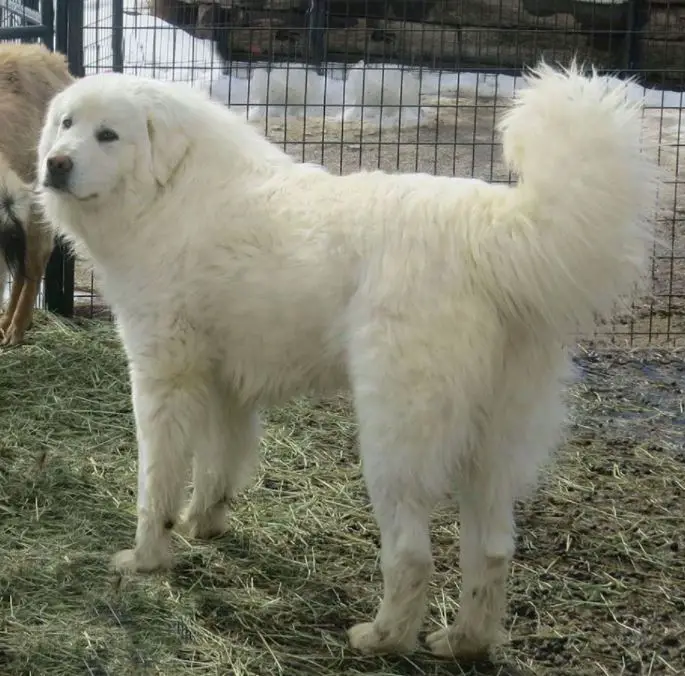
The Colorado Mountain dog is about 34 inches in height, 31 inches at the shoulder, and has a medium-sized chest. The males weigh between 110 to 150 pounds, with the females weighing between 80 to 120 pounds.
They have a well-proportioned body with a straight back and strong legs. The tail is thick with longer fur, and the paws on their feet have solid pads. Your dog’s head is not jowled or massive but slightly refined. He will have a rounded forehead and a long-sloped muzzle.
He has large expressive eyes, almost always dark brown or amber, with a black nose. The ears are V-shaped with rounded tips and dangle at the side of his head. But when he becomes alert, the ears rise to a semi-erect stance.
The coat is soft, with most of the time it being white and medium in length. But there are other colors, such as tan with a dark muzzle, brindle, and badger markings.
There is a dense, long mane around his neck with bloomers on his hind legs. There is short hair on his muzzle and skull.
Other Maintenance
Your dog’s teeth must be brushed more than once a week, so tar doesn’t accumulate.
Your pup’s nails will need to be clipped when required. You will need to bathe him occasionally, so the coat stays white and clean.
Only use a shampoo for dogs because human shampoo is not suited and will be too harsh for your dog’s skin.
A dog shampoo takes care of your dog’s skin and will avoid common infections from breaking out.
Training
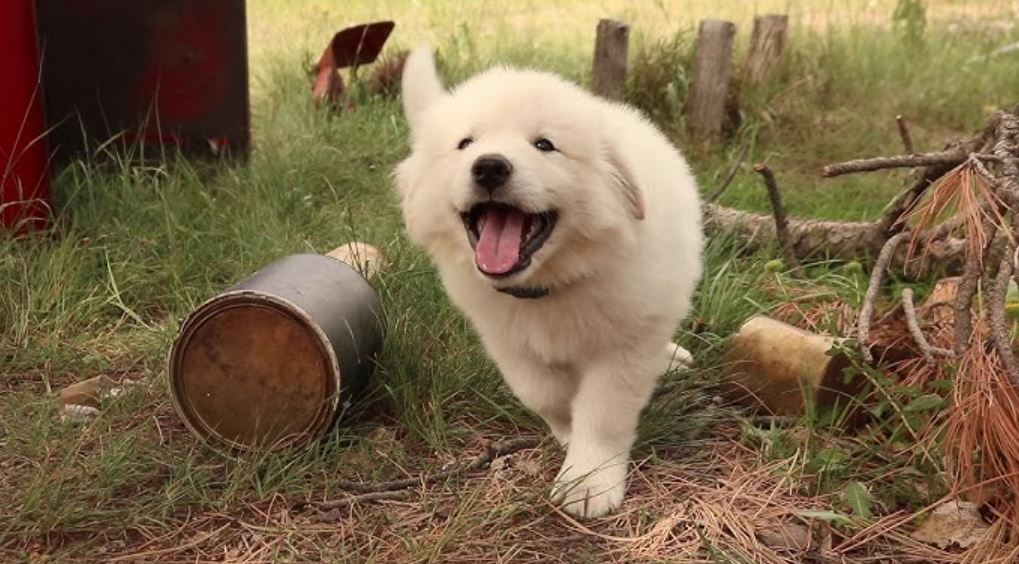
You can start training your little guy as soon as he arrives home with lots of handling and stimulation.
When he’s handled frequently, it forms the socialization process.
You can expose him to different situations, people, sounds, and places. As a result, your pup will become more confident, and he’ll develop his ability to handle unfamiliar people and situations.
You can start training him to do his business outside by showing him where to do his business. It’s an essential step if you plan on keeping your dog as a companion dog who will spend time inside your home.
If you serve his meals with a chew toy alongside it, it will teach your pup what he can and can’t chew.
When your pup is 5 weeks old, he can start obedience training. You can begin to teach him to sit and look directly into your eyes.
By the 7th week, he should follow the basic commands of sit, stay, stand, come, and down. On the 8th week, if he has all that down pat, you can start distance control.
You need to give your puppy basic training to develop his training and social skills. You want to have control over your dog when he’s around livestock and young kids.
Your pup may get rough during his adolescent stage with livestock, so he will need some guidance. This breed is intelligent. They learn fast, so his training shouldn’t last very long before your dog catches on.
How Much Does a Colorado Mountain Dog Cost?
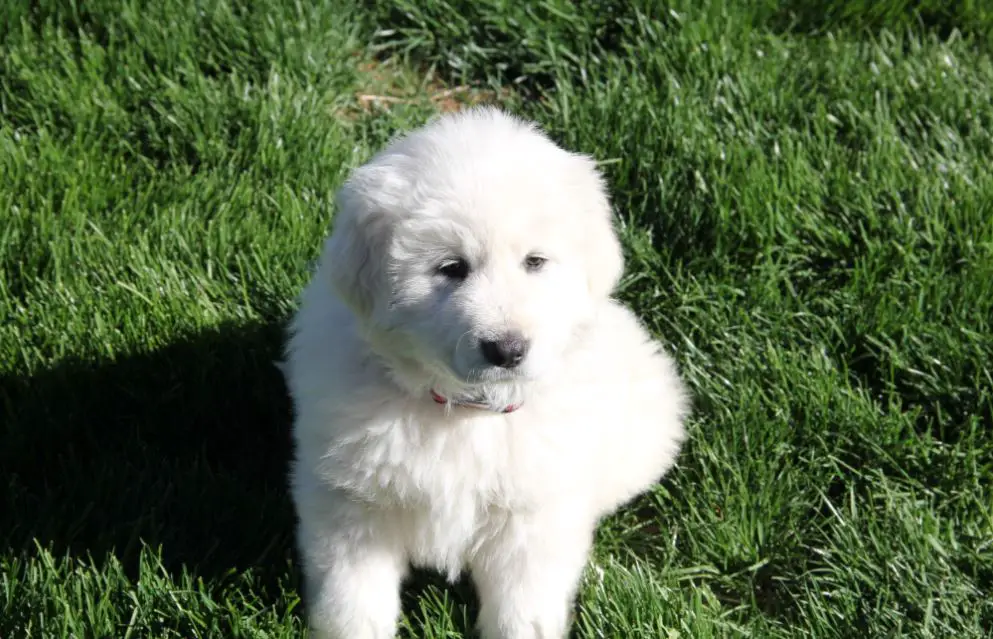
The average price of a Colorado Mountain dog puppy can be from $1,000 to $3,500 for a well-bred puppy. The price depends on the pedigree, where the puppy is located, and the puppy’s age.
A breed-specific rescue is another option that is an excellent way to find a dog for your family. Most rescues price their dogs at between $300 to $400, depending on age. A rescue is a wonderful option if you’re looking to adopt an adult dog.
Most of the time, the rescuers have spent time with the dog. Plus, they are committed to placing their dogs with the right family and are very knowledgeable about the breeds in their rescue.
When you buy your dog from a breeder, you will pay more for puppies with a purer bloodline. Plus, puppies that have the breed standard characteristics are more costly.
For example, if a puppy you are looking at has symmetrical markings in line with what is standard for the breed, the price will cost more.
You can actually save more money if you choose a puppy with lopsided markings if it doesn’t make any difference. If you’re looking for a family dog and not one with a prize lineage to show, then it doesn’t matter if the markings are lopsided.
Always Use A Reputable Dealer
When buying from a breeder, make sure the breeder is reputable. Do your research to make sure your puppy is in good health. There should be vet certificates to show the puppy has been vetted.
DO NOT buy your puppy from Craigslist or a backyard breeder.
It might be a temptation to purchase one from there, but these bargain puppies aren’t a bargain. Also, when you buy a puppy from a backyard breeder, you don’t know what health problems there could be or if the puppy is even healthy.
Worse yet, you could be buying from a “dog flipper.” These people buy dogs from a shelter and then sell them on Craigslist for a higher price. They basically know nothing about these dogs and are in to just sell them for the money.
Health Issues
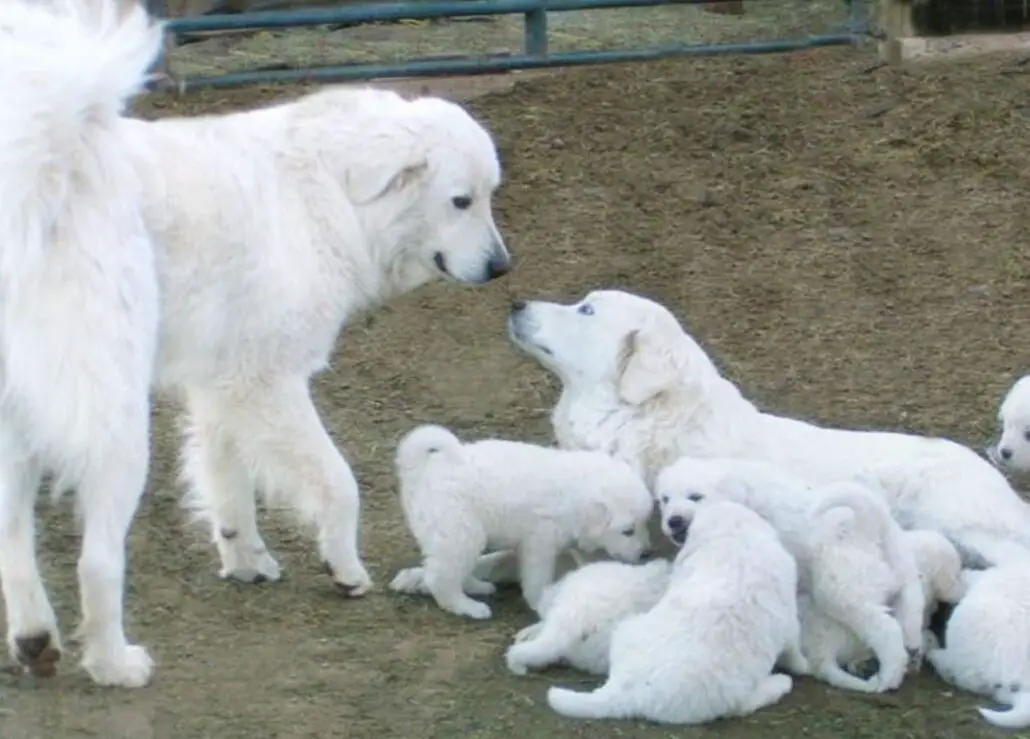
As with any type of dog breed, there are health issues that could crop up. Below is a list of some of the health issues that might affect your dog:
- Bloat: Gastric Dilatation and Volvulus is also known as a Bloat or GDV. This problem can occur in a dog that has a deep and narrow chest. So your dog is at risk than most other breeds. When a dog’s stomach bloats, it twists on itself and fills up with gas. The twisting will cut off the blood supply to your dog’s stomach and, occasionally, the spleen. It becomes fatal if left untreated.
- Joint disease: This happens if your puppy is permitted to grow too fast. The cartilage in his joints may not attach to the bone correctly. Surgery will be needed to correct the problem.
- Bleeding disorders: Von Willebrand’s disease is a blood clotting disease found in Colorado Mountain dogs.
- Epilepsy: This is a disorder that can be common in this breed. It’s an inherited condition, and your dog would start having seizures between six months and three years if affected. Usually, lifelong medication is needed to keep the seizures under control.
- Lymphoma: Unfortunately, this type of cancer afflicts Colorado Mountain dogs more than the other breeds. It can show up anywhere because white blood cells are found throughout the body. It is a treatable form of cancer when seen in the early stages.
Conclusion
Colorado Mountain dogs can be a friendly pet for your family. However, remember that the breed is trained to guard livestock and needs lots of exercise if kept as a house dog. If you’re looking for a large, friendly dog that seldom barks, then this is the breed for you.
If you would like to know more info about the Colorado Mountain dog, click here:
https://www.youtube.com/watch?v=WwWPvjlZIgg
References:
https://hellobark.com/advice/colorado-mountain-dogs-pros-and-cons/
https://petsgossips.com/colorado-mountain-dog/
https://www.ebknows.com/colorado-mountain-dog/
https://www.dogtemperament.com/bernese-mountain-dog-price/
https://animalhealthcenternh.com/client-resources/breed-info/bernese-mountain-dog/


